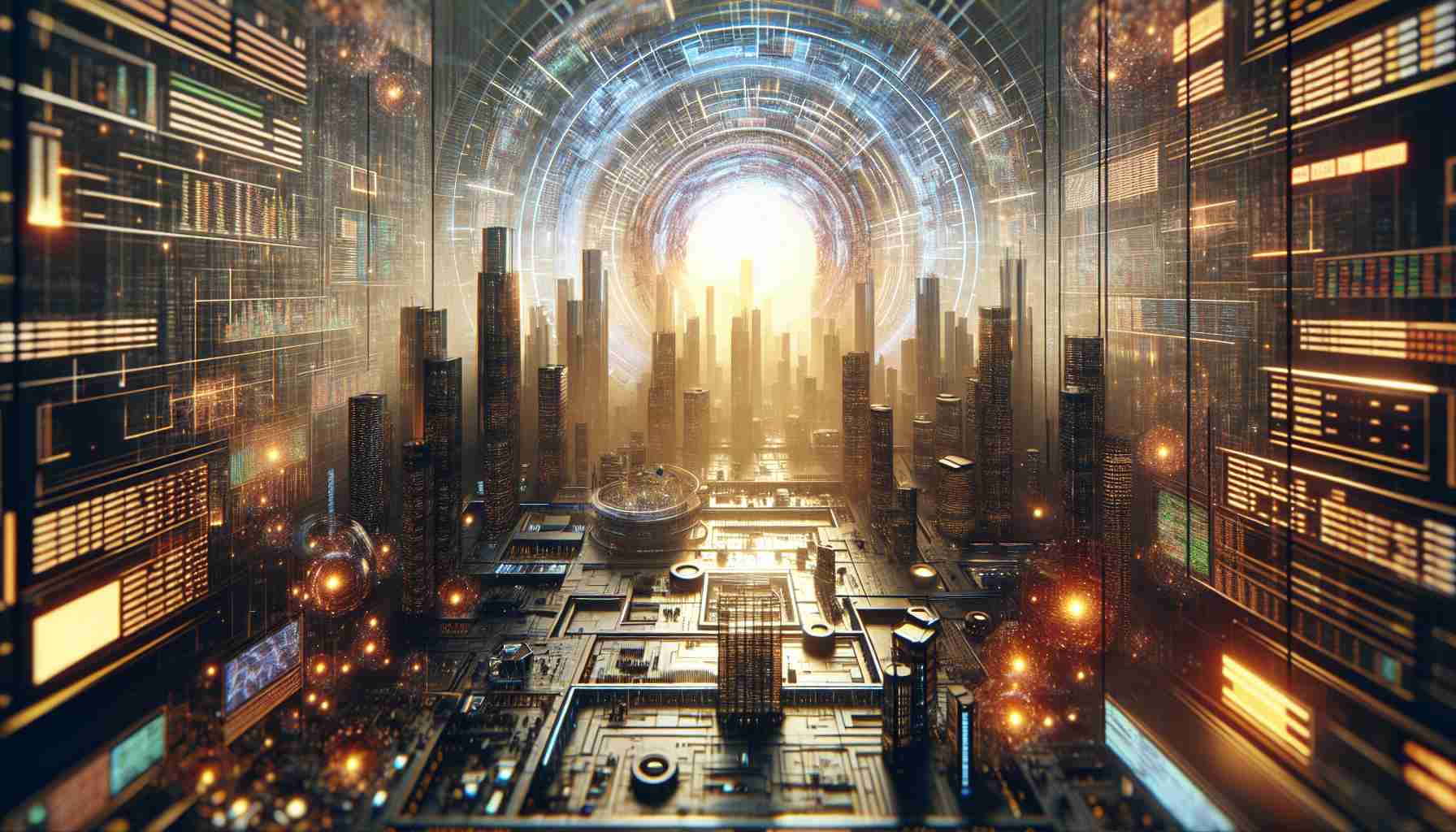Robinhood: Uus Innovatsiooni Aeg
Robinhood Markets, maapinda murdev komisjonivaba kauplemisplatvorm, on teeninud Yahoo Finance’i “Aasta Tõusva Aktsia” tiitli. Hoolimata tõsistest väljakutsetest pärast 2021. aasta esmase avaliku pakkumise (IPO) läbikukkumist, sealhulgas hämmastav 90%-line langus aktsia väärtuses, on Robinhoodil plaanis 2025. aastal edeneda põnevate kasvustrateegiatega.
Väljakutsete Muutmine Võimalusteks
Ettevõtte edusammud pandeemia ajal olid varjutatud vastuoludega, eriti seoses kauplemispiirangutega populaarsetel aktsiatel nagu GameStop. Selle tulemusena langes investorite usaldus. Siiski näitavad viimased arengud tugevat taastumist, mille tulemusena on tema tulevane hinna ja kasumi (P/E) suhe 40,00X, mis näitab uuenenud optimismi.
Strateegilised Innovatsioonid Ees
CEO Vlad Tenevi juhtimisel valmistub Robinhood muutuste aastaks. Peamised algatused hõlmavad:
1. Krüptovaluutateenuste Tõhustamine: Ettevõte plaanib suurendada oma krüptovaluutade ökosüsteemi, tutvustades võimalusel täiustatud kauplemisvõimalusi ja uusi digitaalseid varasid.
2. Kopeerimisvõimekuse Funktsioonid: See tulevane funktsioon võimaldab kasutajatel jälgida edukaid kauplejate strateegiaid, meelitades nii algajaid kui ka kogenud investoreid.
3. Tuleviku Turud: Konkurentsi käivitamiseks uute platvormidega plaanib Robinhood pakkuda kasutajatele võimalusi panustada erinevatele tulemustele, alates valimistest kuni spordiüritusteni.
4. Kasutajakogemuse Parandamine: Uuendatud mobiilirakenduse ja hariduslike tööriistadega kavatseb Robinhood volitada oma kasutajaid teadlikult kauplema.
Kui Robinhood alustab seda ambitsioonikat teekonda, näitab see vastupidavust ja innovatsiooni pidevalt arenevas fintech-maastikus. Ettevõte on valmis mitte ainult oma silmapaistvat positsiooni taastama, vaid ka jaekaubanduse investeerimise defineerima kõigile.
Robinhood: Fintechi Tuleviku Eestvedamine
Robinhood Markets on muutunud oluliseks tegijaks rahandustehnoloogia valdkonnas, eriti pärast seda, kui seda on nimetatud Yahoo Finance’i “Aasta Tõusva Aktsia” tiitli saajaks. Pärast 2021. aasta esmase avaliku pakkumise (IPO) madalseisude ületamist on ettevõte seadnud sihid muutuste teele, lähenedes 2025. aastale.
Kopsudest Tugevusteni
Kuigi Robinhood seisis silmitsi intensiivse kriitika ja märkimisväärse aktsia väärtuse langusega — ühel hetkel 90% — on investorite vajadus tagasi tulemas. Tulevane hinna ja kasumi (P/E) suhe, mis näitab uuenenud investorite usaldust, on 40,00X ning see näitab, et Robinhood ei ole mitte ainult ellujäänud, vaid ka arenev.
Olulised Innovatsioonid ja Funktsioonid
CEO Vlad Tenevi nägusa juhtimise all alustab Robinhood mitmeid strateegilisi algatusi, mille eesmärk on muuta kasutajate kogemust ja laiendada oma pakkumisi. Siin on, mida oodata:
1. Krüptovaluutateenuste Täiendamine: Robinhood plaanib oluliselt laiendada oma krüptovaluutade pakkumisi. See hõlmab uute digitaalsete varade ja keerukate kauplemisvõimaluste lisamist, et meelitada laiemat kasutajaskonda, kes on huvitatud digitaalsest investeeringust.
2. Kopeerimisvõimekuse Funktsioonide Sisseviimine: Investeerimisstrateegiate demokratiseerimiseks võimaldab see funktsioon kasutajatel kopeerida eduka investorite tehingut, muutes algajatele kauplemise lihtsamaks.
3. Tuleviku Turgude Uurimine: Robinhood seab eesmärgiks tutvuda tuleviku turgudega, kus kasutajad saavad panustada erinevatesse tulemustesse alates poliitilistest valimistest kuni spordiüritusteni, suurendades kaasatust ja pakkudes ainulaadseid investeerimisvõimalusi.
4. Kasutajakogemuse Uuendamine: Platvorm käivitab parendatud mobiilirakenduse, mis keskendub kasutaja kesksele disainile ja hariduslikele ressurssidele, et varustada kasutajaid teadmistega teadlikuks kauplemiseks.
Robinhoodi Kasutamise Plussid ja Miinused
- Plussid:
- 1. Komisjoni puudumine muudab investeerimise kergesti kättesaadavaks kõigile.
- 2. Kasutajasõbralik liides, mis meeldib algajatele.
- 3. Innovatiivsed omadused nagu krüptovaluutakaubandus ja peagi kopeerimisvõimekus.
- Miinused:
- 1. Ajaloolised vastuolud võivad mõjutada kasutajate usaldust.
- 2. Piiratud investeerimisvõimalused võrreldes mõnede konkurentidega.
- 3. Potentsiaalsed regulatiivsed väljakutsed uutes turgudes.
Turu Trendide ja Ennustuste Ülevaade
Fintech-sektor on järjest konkurentsitihedamaks muutunud, kus paljud platvormid tutvustavad täiustatud funktsioone, et hõivata turuosa. Selle konkurentsivõimelise keskkonna sees võivad Robinhoodi jõupingutused uute teenuste, nagu tuleviku turud, integreerimiseks anda olulise eelise. Kui jaekaubanduse investeerimise trend jätkab kasvu suunda, siis oodatav kasv digitaalsete varade ja krüptovaluutade kasutuses vastab praegustele turusuundumustele.
Lisaks võiks Robinhoodi pühendumine kasutajakoolituse parendamisele meelitada rohkem algajaid investoreid, kes soovivad kaubelda teadmiste juures, mille tulemuseks on potentsiaalne kliendi hoidmise ja rahulolu suurenemine.
Lisainformatsiooni Robinhoodi ja selle pakkumiste kohta leiate aadressilt Robinhood.
